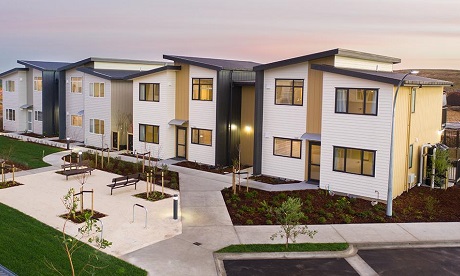Churches are stepping up to help solve the housing crisis.
Worth billions in assets, some churches are spending millions building social and affordable accommodation on surplus land.
There is pressure on others to ensure their investments reap social as well as financial rewards.
Paul Gilberd, a senior member of the Anglican Church, estimates the Anglican, Catholic and Methodist churches are collectively worth more than $10 billion.
They could be the “nation’s life preserver” if they put more of their massive wealth into housing, he says.
He and others are looking at the future use of Anglican Church assets worth more than $3b.
Their report “He waka eke noa” (A waka we are all in together), says the credibility of demands made by church leaders in annual meetings with the prime minister “have for years been undermined by our lack of courage and action given the collective billions in assets we hold within the church.”
The report notes the church is a significant landowner, with some of that land gifted by Māori, and given the desperate housing needs, particularly for Māori and Pasifika, it should be mindful of criticism in the Bible about “those who own land and do not provide housing for the poor.”
After reading the report, the Anglican general synod has asked those responsible for managing its assets to ensure investments are “mission-aligned” and meet standards of “fruitful stewardship”.
Stepping up to meet social and affordable housing is seen as a priority. Dioceses will report back next year on efforts to meet synod expectations.
About a third of the 60 Anglican Wellington region parishes have identified surplus land that could be used for up to 200 homes.
The Wellington Anglican Diocesan trust board hopes the first of 26 social housing units costing $7m will get underway next year. Others are planned.
The board has also put $1m (about 2 percent of its total capital) into Christian Savings, an ecumenical finance company.
A further $180m is on loan to churches and faith-based charities.
Christian Savings lending manager Dan Mazengarb says $1m allows organisations to lend almost $18m for residential projects.
Demand for community housing finance has tripled in the last five years and now makes up about 20 percent of lending.
Mazengarb says although the Anglican, Catholic and Methodist churches borrow from Christian Savings, they tend to deposit their money elsewhere, despite Christian Savings’ good record and higher rates of return.
To overcome regulatory limits on its lending capacity, Christian Savings set up Community Finance to provide capital for community housing.
It has raised $71m through bond issues, lending $40m to the Salvation Army to build 118 Auckland social housing units. It has over 1000 houses in the pipeline throughout the country.
The Salvation Army says many churches would be uncomfortable with the level of debt they have. However, applications for housing places are far exceeded by applications and referrals.
At the end of March, there were nearly 24,000 households on the public housing waiting list, 45 percent more than a year earlier, far surpassing the extra 8000 housing places the Government aims to deliver by 2024.
Source
- Stuff
- Image: The Salvation Army
